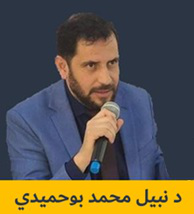 Two Moroccan consulates allow mothers to apply for passports for children
Two Moroccan consulates allow mothers to apply for passports for children
The Moroccan consulates in New York and Madrid recently lifted the requirement for paternal authorization to obtain or renew children’s passports.
This historic decision, announced last Thursday in their respective jurisdictions, gives mothers unprecedented autonomy in these crucial administrative procedures.
After years of hard struggle, feminist associations defending the rights of women and children are finally relieved.
This bold measure stems from a circular issued by the Moroccan Ministry of the Interior, which also extends to the entire country, signifying a profound reform in the country’s bureaucratic practices.
According to reports in the local press, this revolution aims to simplify administrative procedures, particularly in the field of identification and travel documents, offering a breath of fresh air for Moroccan families living abroad.
The Moroccan consulate in New York described the measure as a “significant step towards modernizing consular services”, while its counterpart in Madrid stressed that it was in perfect harmony with a recent directive from the Moroccan Ministry of the Interior.
This explicitly informs local authorities that it is “no longer necessary for the mother to obtain the father’s authorization for procedures relating to the passports of her minor children.”
However, there is an exception to every rule. This measure does not apply in the event of a court ruling to the contrary. Both consulates have insisted on this point, indicating their absolute respect for judicial decisions.
From now on, Moroccan mothers will have the right to apply for and renew their minor children’s passports without requiring the father’s prior authorization.
Despite this major step forward, confusion is setting in, particularly as regards the instructions published on the passport.ma website, which continue to mention the prior agreement of the legal representative as an essential condition for the granting of a passport.
This apparent dilemma could raise questions about the practical implementation of this new measure, perhaps requiring further clarification from the competent authorities.
More than a simple reform to facilitate administrative measures, this step is of crucial importance because of its direct implication on the child’s well-being.
Indeed, it is designed to prioritize the interests of these minors, taking into consideration various facets of their lives. Issuing or renewing a passport without the child’s father’s authorization facilitates the regularization of the child’s stay in the host country.
This not only enables him to enjoy his legal rights, but also to access certain benefits that are essential to his development.
This procedure is thus part of a more inclusive approach aimed at ensuring the child’s stability and well-being in his or her social, cultural and legal environment.
Fatiha Chatatou, a lawyer and member of the Federation of the Women’s Rights League, told Hespress that the measures revive the discussion on “the issue of legal guardianship of children, which raises a set of issues and difficulties not only for women but also for children, as practical practice has shown the need to review and amend the legal articles regulating it, and this requires a legal amendment and not just circulars.”
The jurist emphasized “the need for the Moroccan legislator to intervene to protect the best interest of the child in compliance with international conventions and treaties ratified by Morocco, such as the Convention on the Rights of the Child, as well as the Convention on the Elimination of All Forms of Discrimination against Women,” noting that “the Moroccan family today has evolved and society has evolved as well.
In the current Family code reform context, this initiative marks a turning point in administrative relations between parents and Moroccan consular authorities, and a desire to adapt to the needs of families and modernize societal practices.
MarocDroit منصة مغرب القانون "الأصلية"



 الدكتوراه في قانون العقود والعقار ـ إشراف الدكتور إدريس الفاخوري
الدكتوراه في قانون العقود والعقار ـ إشراف الدكتور إدريس الفاخوري 














 Two Moroccan consulates allow mothers to apply for passports for children
Two Moroccan consulates allow mothers to apply for passports for children













